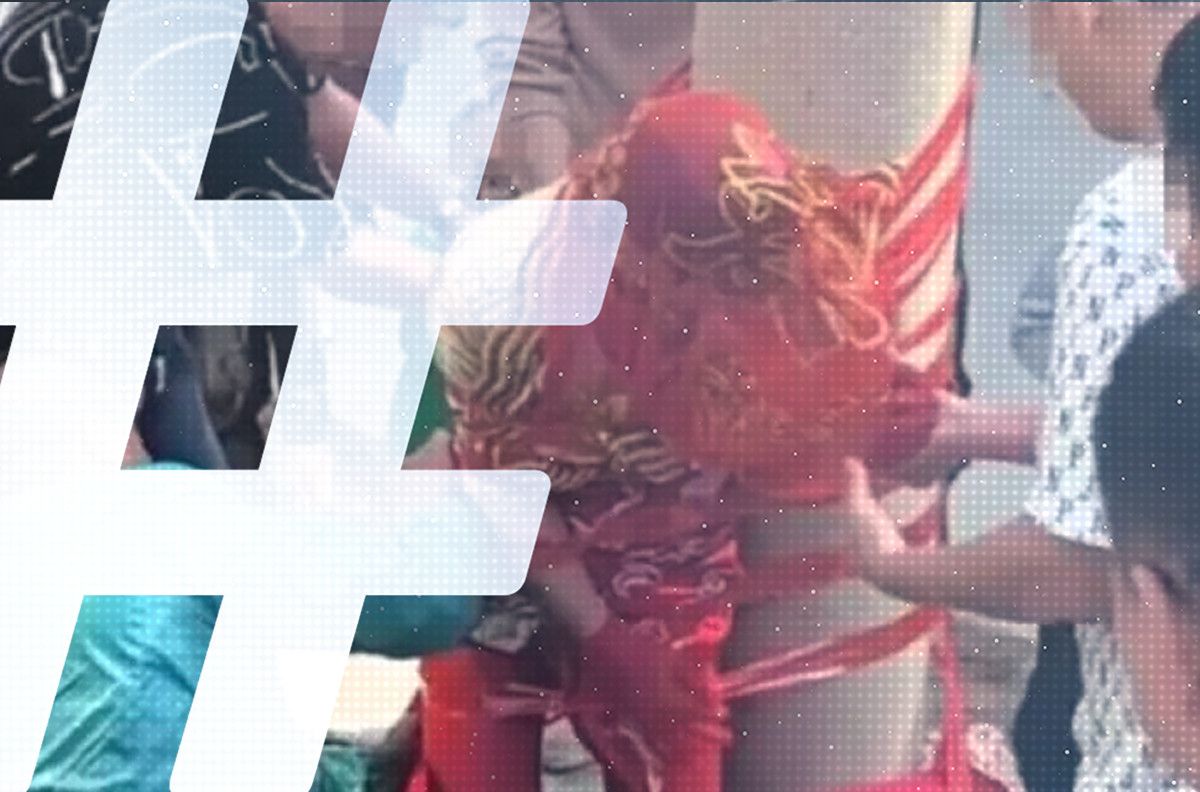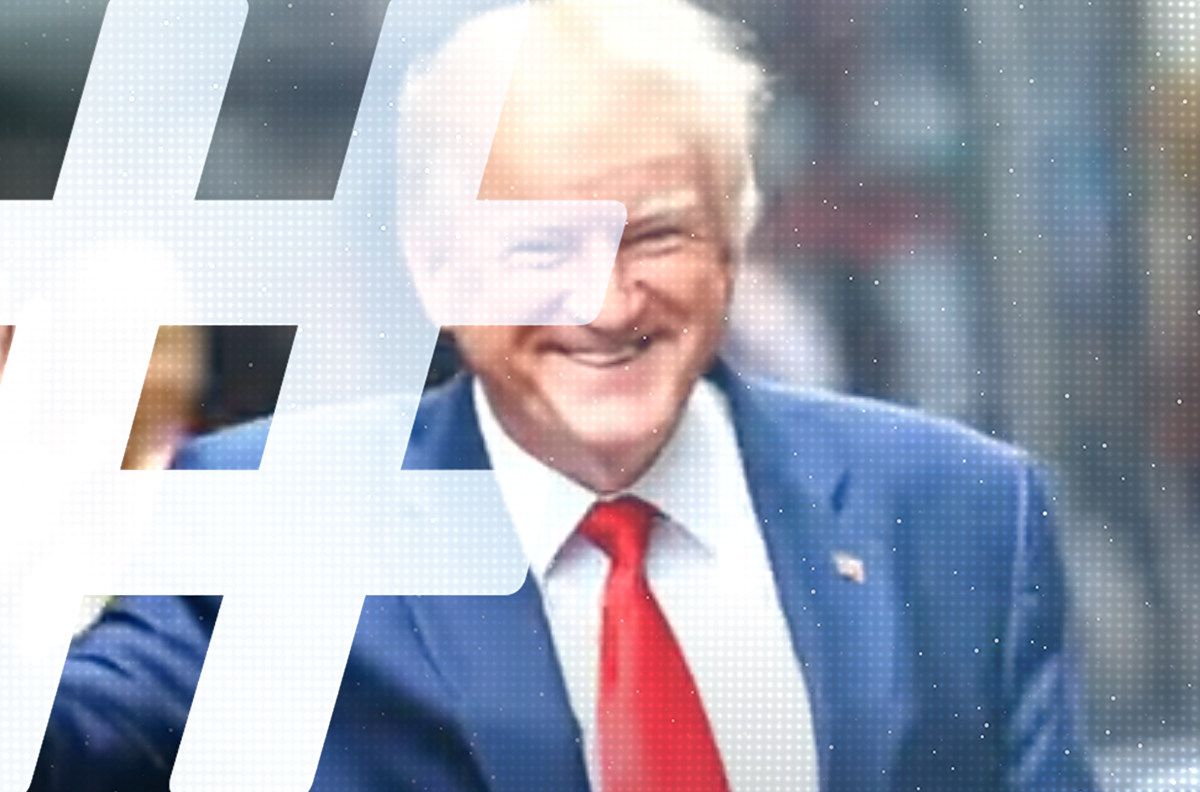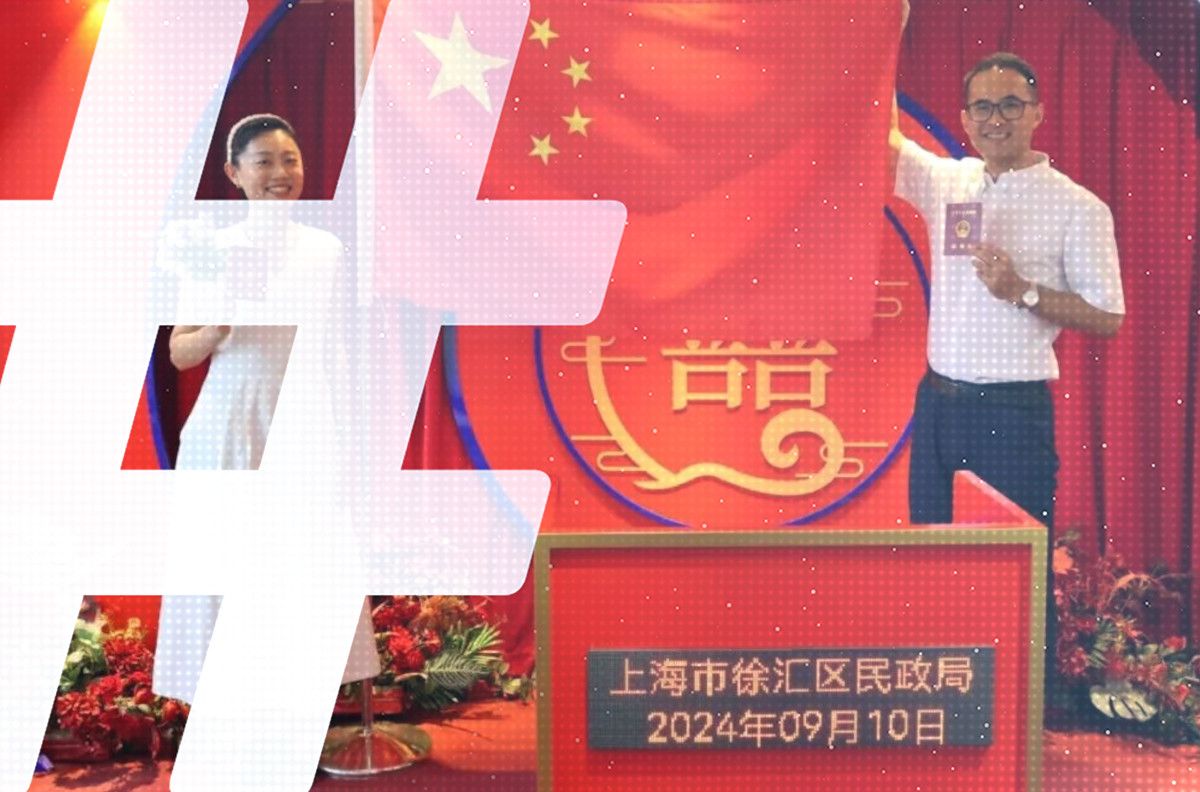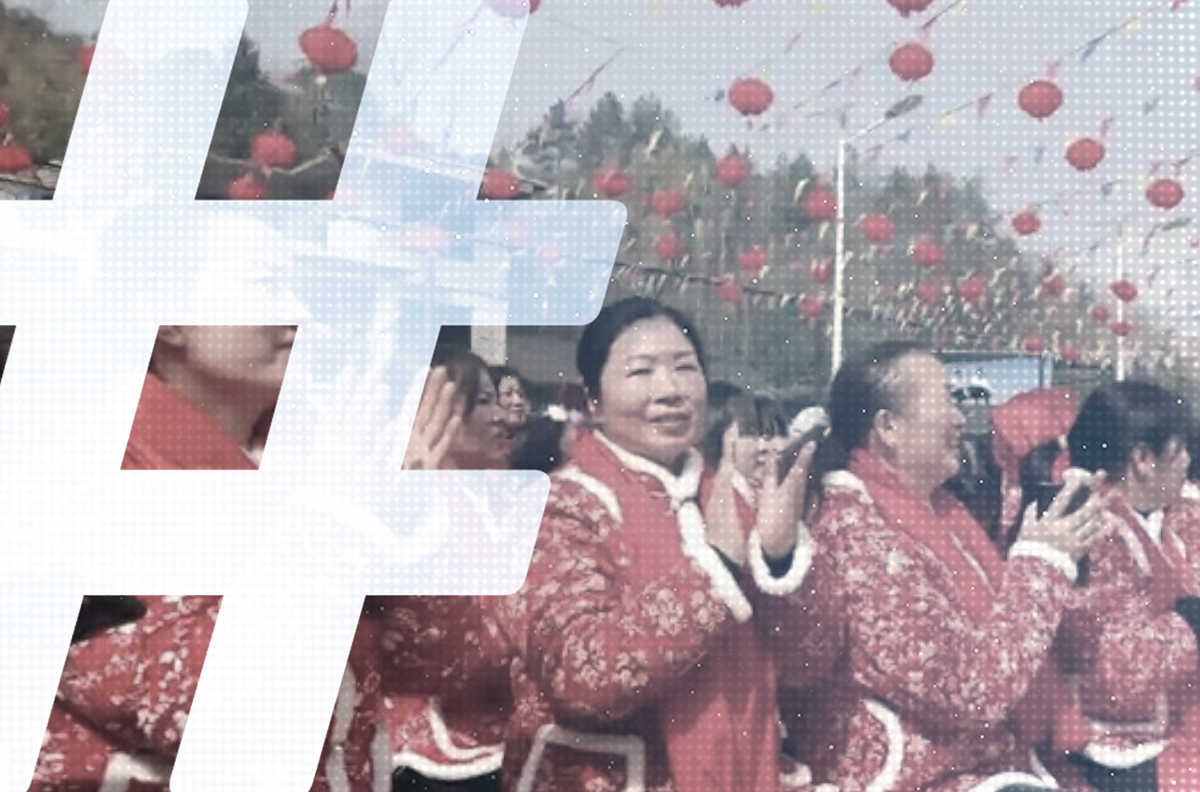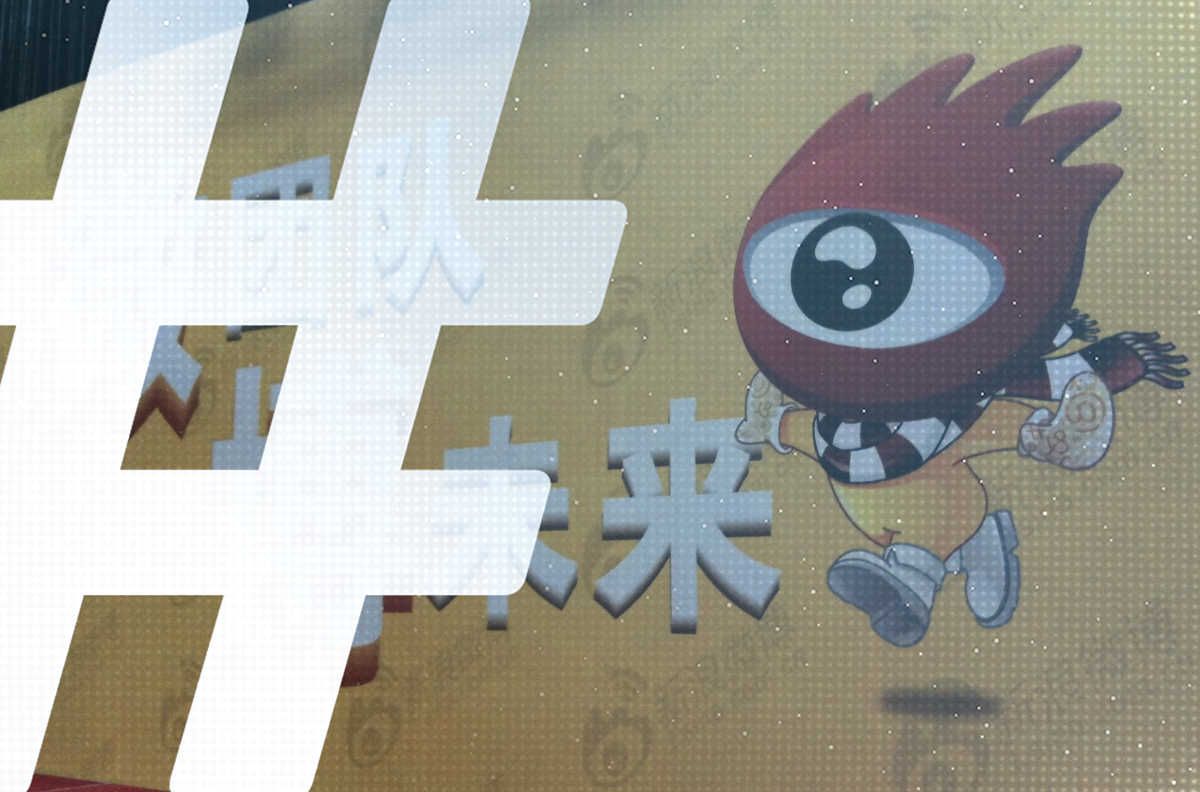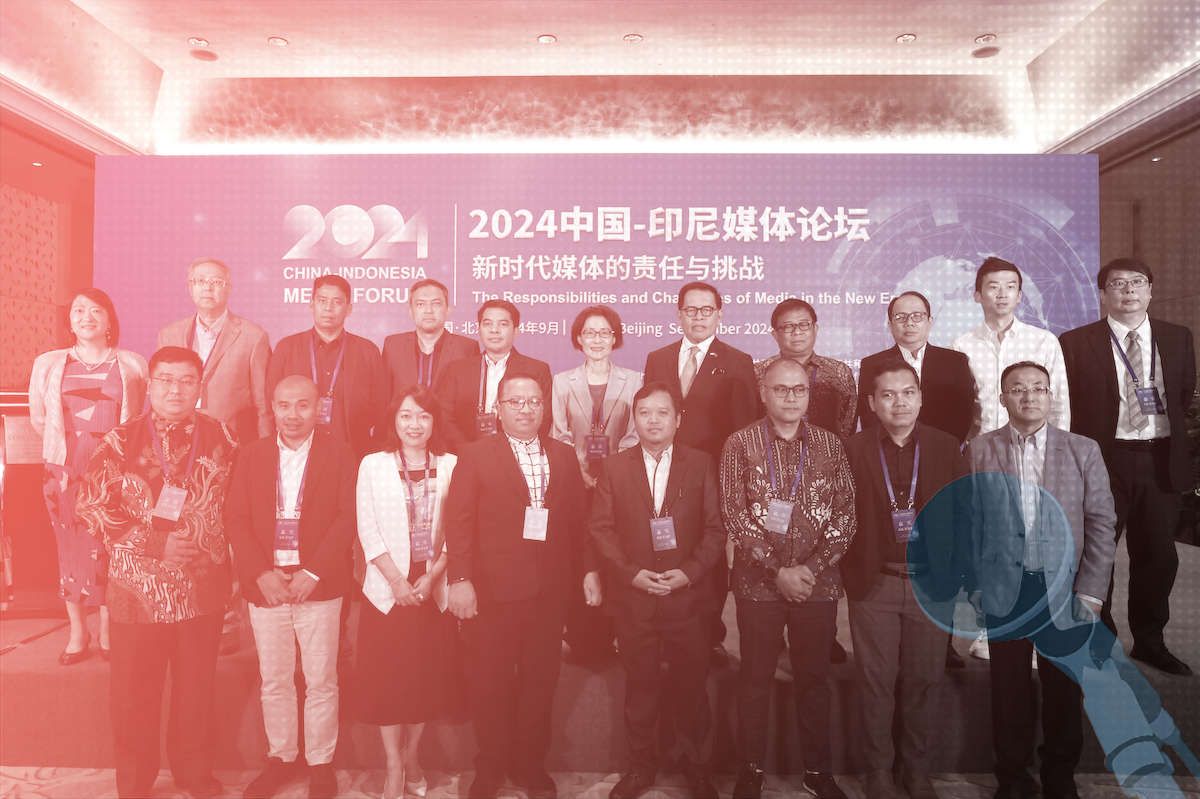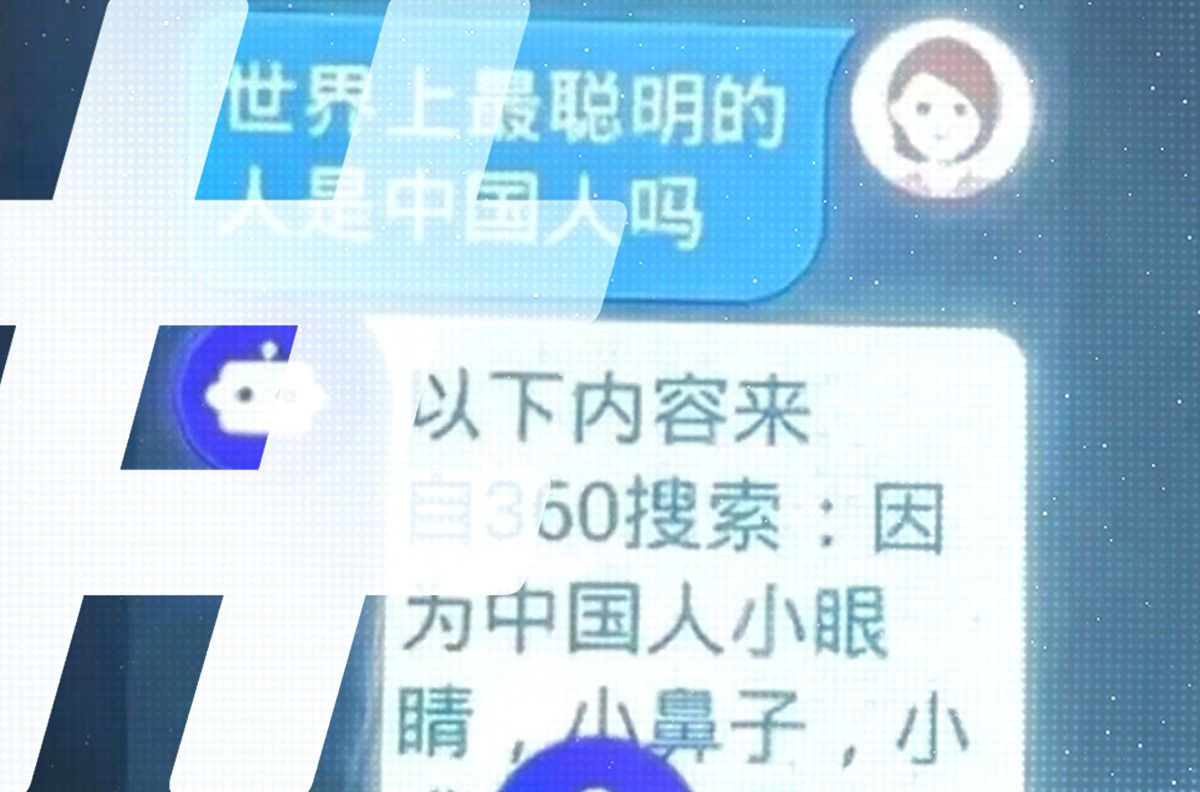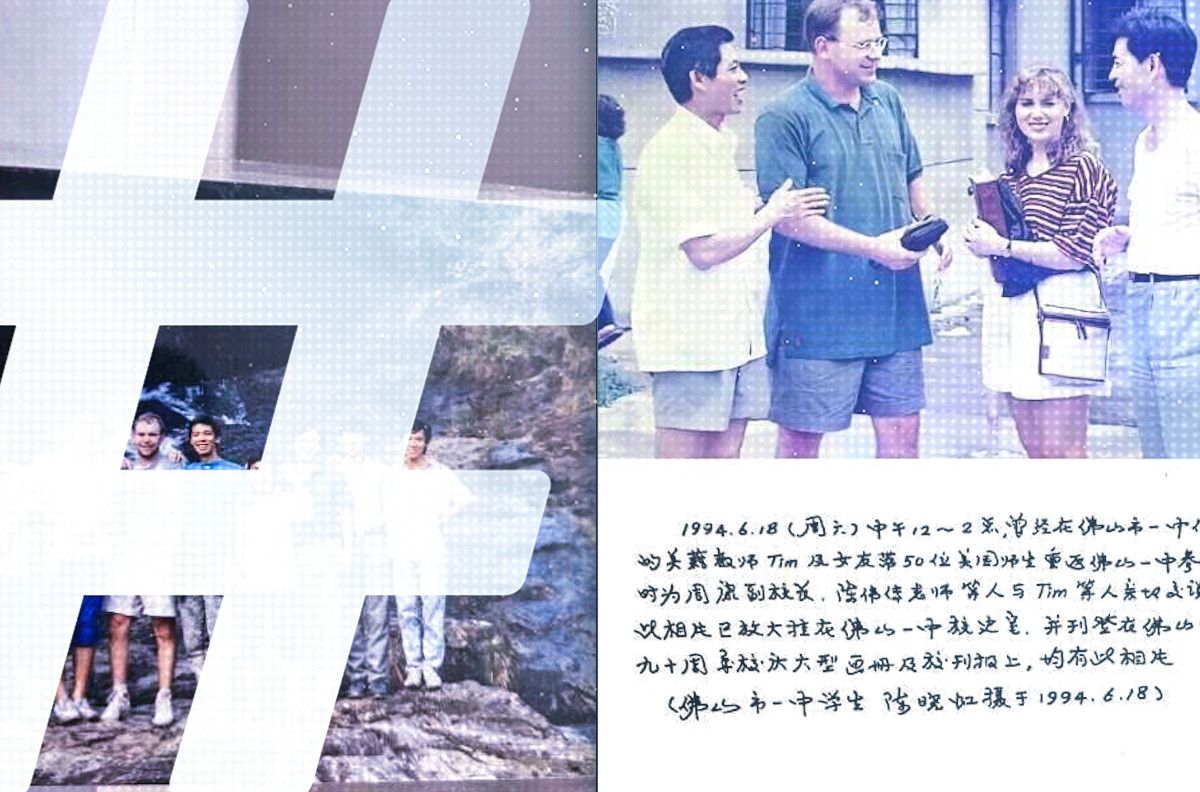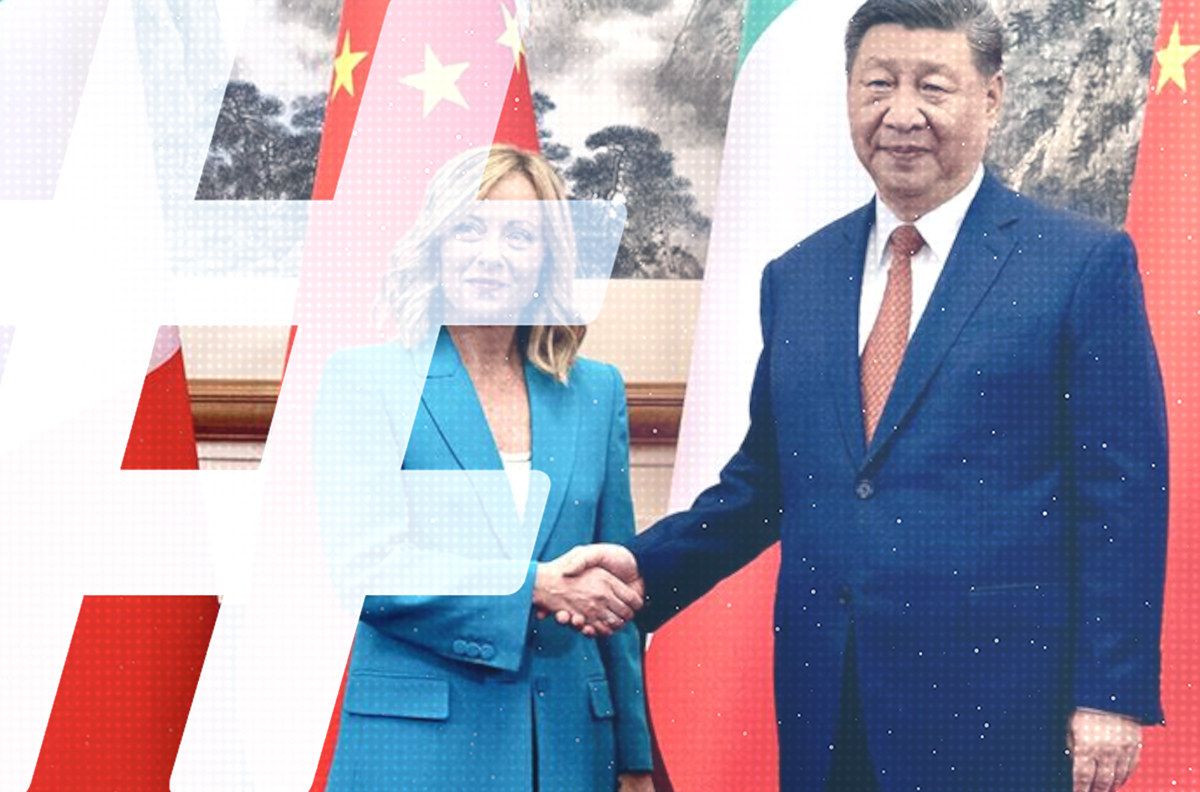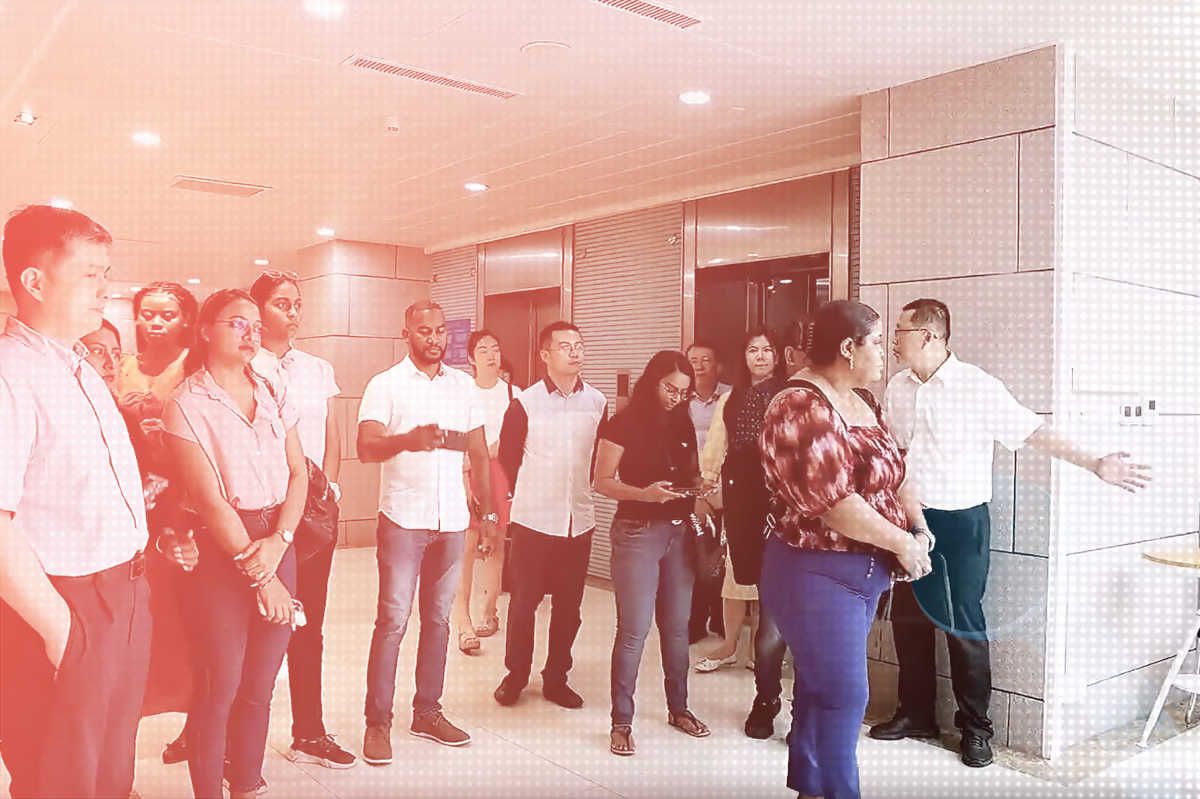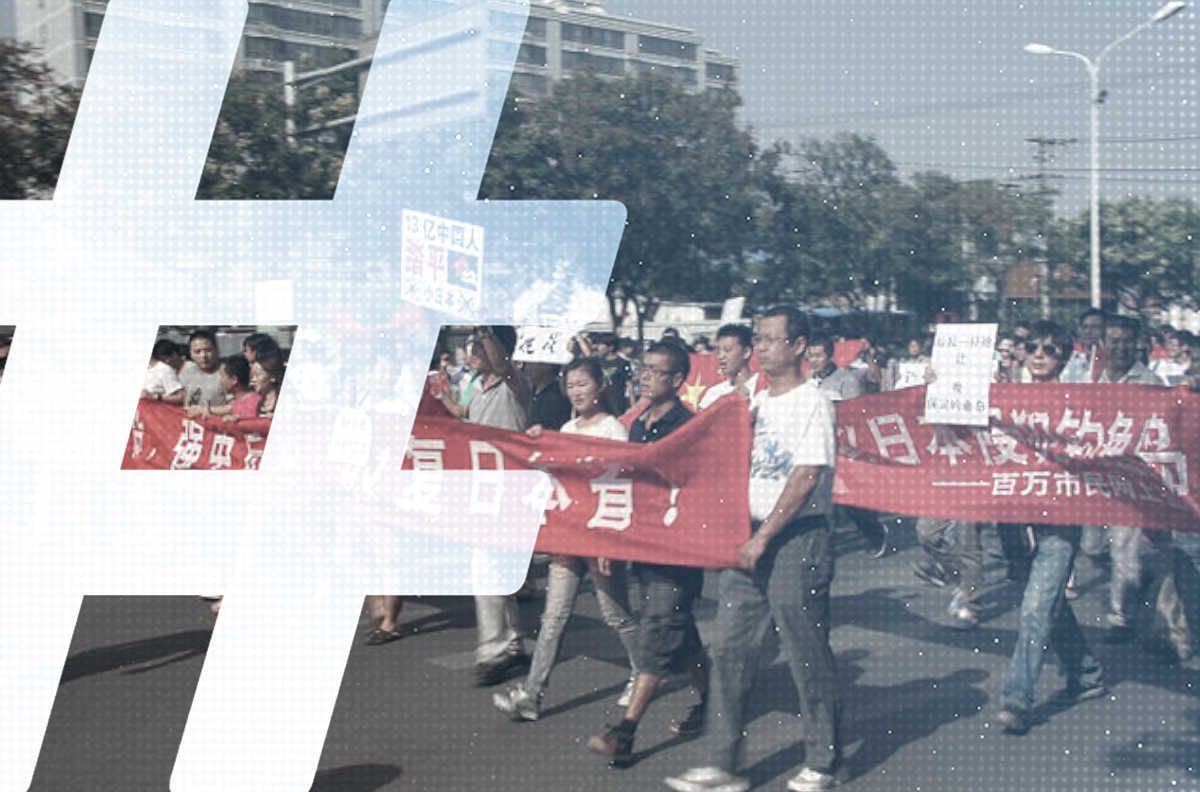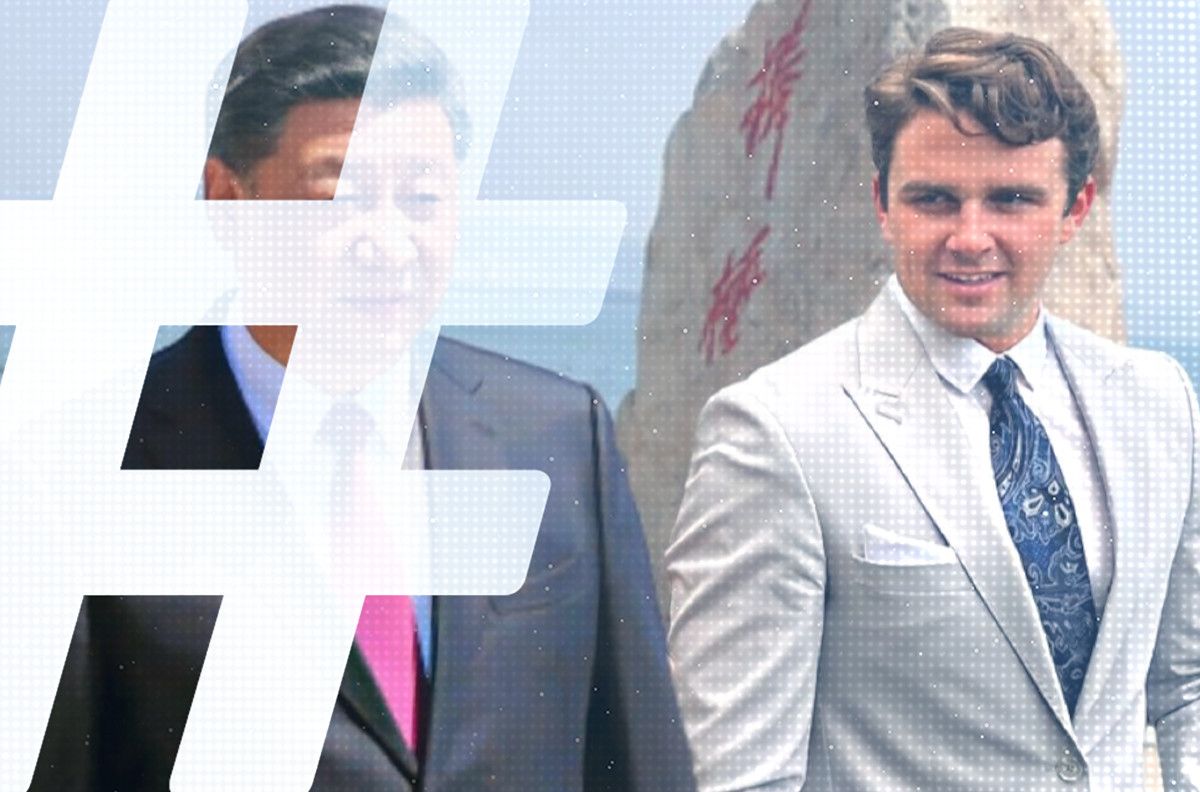
In 2015 then Vice President Joe Biden stands with Xi Jinping before a luncheon at the US Department of State in Washington, D.C. Public Domain Image from the US State Department.
Virtual talks between Chinese leader Xi Jinping and US President Joe Biden reportedly stretched to three and a half hours and covered a range of issues, from trade and cooperation to democracy and human rights. How were these issues reflected in coverage from the Party-state media in China? Here are just a few notes.
On the issue of democracy and human rights, Biden had sought to frame confrontation between China and the US as being about the broader struggle between autocracy and democracy. State media emphasized that Xi pushed back by asserting China has its own functioning form of democracy – and that outside meddling amounts to “undemocratic behavior.”
The assertion corresponds, in fact, with a strong push by Xi at home to champion what he calls “whole-process democracy” (全過程的民主), essentially arguing that China has found a democratic system distinct from “that in the West.” According to Xinhua News Agency:
Xi Jinping stressed that civilization is rich and abundant, and so is democracy. Democracy is not a customized product (定制的产品), with one model for the whole world, and one standard. Whether a country is democratic or not is to be judged by the people of that country themselves. To exclude different forms of democracy simply because they are different is itself undemocratic behavior. We are willing to conduct dialogue on human rights issues on the basis of mutual respect, but we do not support the use of human rights issues to interfere in the internal affairs of other countries.
While a senior US official told journalists that the tone of the exchanges remained “respectful and straightforward,” perhaps the most contentious issue was that of Taiwan. The White House readout was measured in its statement following the talks. “On Taiwan, President Biden underscored that the United States . . . . strongly opposes unilateral efforts to change the status quo or undermine peace and stability across the Taiwan Strait,” the statement read.
Xi was firm in his tone on the Taiwan question. “China is patient and seeks peaceful reunification with great sincerity and effort,” he told his counterpart, “but if Taiwan secessionists provoke, or even cross the red line, we will have to take decisive measures.”
As state media reported the issue of Taiwan in coverage of the talks, two phrases in particular came into focus. On its official Weibo account, the Chinese Communist Party’s flagship People’s Daily newspaper shared a quote card with US and Chinese national flags that read: “The Taiwan situation faces a new round of sensitivities, and the reason is that Taiwan authorities continually ‘lean on America in the pursuit of independence’ (倚美谋独), and certain people on the US side intentionally play [a game of] ‘using Taiwan to control China’ (以台制华).”
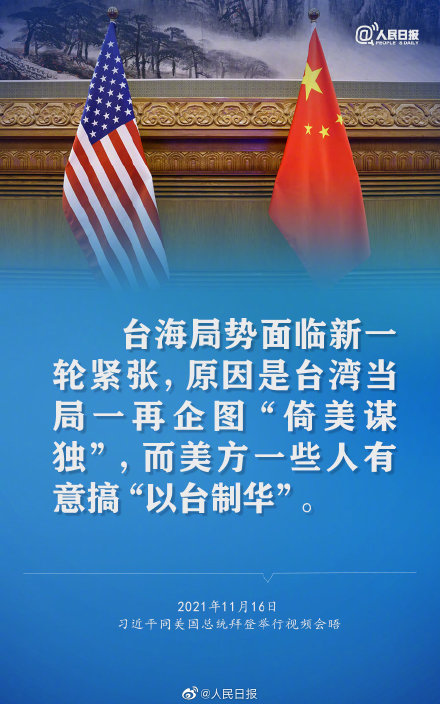
These phrases are in fact relative newcomers to official CCP discourse. The phrase “lean on America in the pursuit of independence” has appeared just eight times in the People’s Daily, having first emerged in the paper on September 2, 2020, with a headline that read: “US Six Assurances are Illegal and Void, Democratic Progressive Party Authorities Leaning on America to Seek ‘Independence’ Will Have Terrible Consequences” (美方“六项保证”非法无效,民进党当局倚美谋“独”必食恶果).
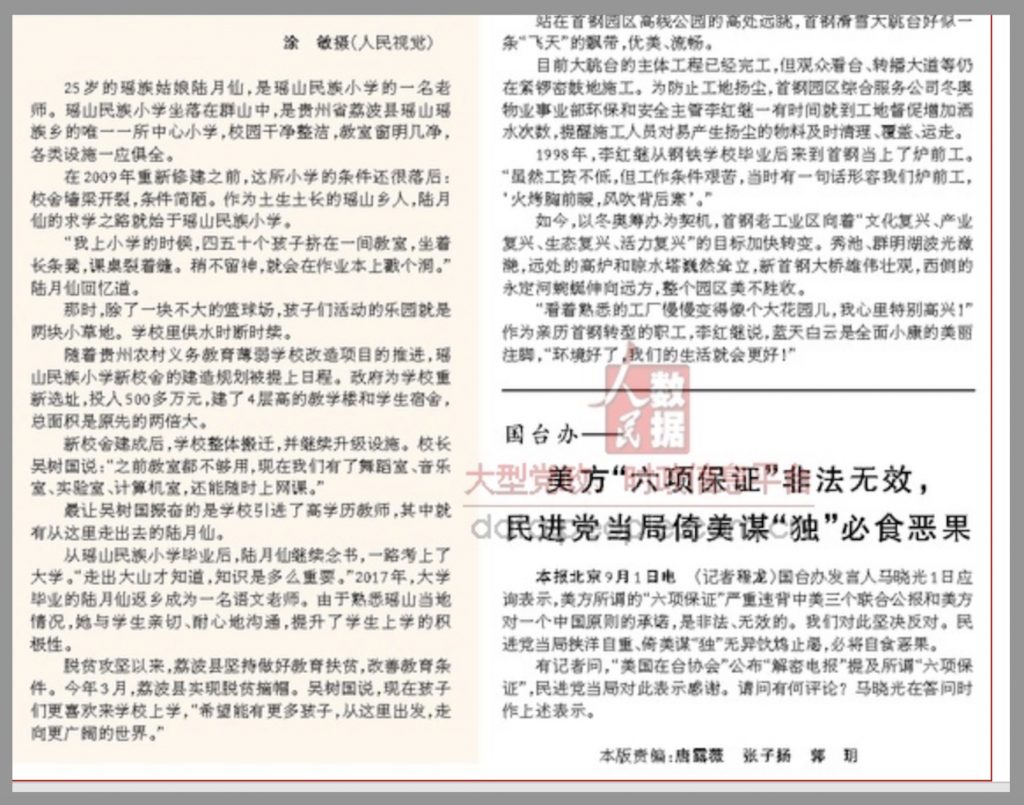
Four separate articles using “lean on America in the pursuit of independence” appeared in the People’s Daily in January this year, followed by one article in April and two more in August. The first of the two August articles was a commentary under the name “Zhong Sheng” (钟声), which is used for important pieces on international affairs on which the leadership wishes to register its view. That article included the second of the above phrases, “using Taiwan to control China,” in the headline, which read: “‘Using Taiwan to Control China’ is Doomed to Fail” (‘以台制华”注定徒劳).
The “Zhong Sheng” commentary read:
The DPP authorities are caught in the American dream of ‘leaning on America to seek independence” dream, and this is entirely empty. Some Taiwanese scholars have hit the nail on the head by pointing out that in the eyes of the United States, Taiwan is merely a pawn, a pawn that can be abandoned and sacrificed at any time. As the comprehensive strength of the motherland continues to advance, the gap between the strength of the two sides of the Taiwan Strait continues to widen, and the dominant power in the development of cross-strait relations is increasingly firmly with the motherland.
The phrase “using Taiwan to control China” has appeared a total of 14 times in the People’s Daily, all but one of these in the Xi era (all since 2019). The first use of the phrase occurred in June 1995, following a visit to the United States by Taiwan’s president, Lee Teng-hui. A page 6 commentary accused the United States of playing the “Taiwan card,” and said that “Lee Teng-hui has transgressed national righteousness and held foreigners hostage in order to aggrandize himself, essentially giving the United States a bargaining chip ‘using Taiwan to control China.”


